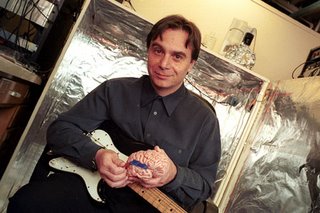Healing Music New Year!
Well, do you have big plans for tonight? There are so many traditions
related to New Year's Eve and it's certainly not a big surprise. This is the
classic "turning point" in everyone's year. No matter what religion you are or
what your belief system, it's the classic time to make big behavioral changes.
People decide to quit smoking, exercise more, lose weight, become more
assertive...all kinds of things! For people who love music, it might be a good
time to dust off an instrument, pick up a new instrument, join a choir or a
band or a community orchestra. Music lifts the spirit, it infuses you with
energy, it calms a racing mind, it soothes the soul. The song "Auld Lang Syne"
has been played for decades, if
not centuries, on New Year's Eve. Guy Lombardo popularized the familiar
saxophone rendition in 1939. He first broadcast it on his radio special, The
Lombardo New Year's Eve Party, which started in 1929 and is the
longest-running annual program in radio history. Lombardo died in 1977, but
his saxophone rendition of Auld Lang Syne has immortalized him in western
culture, becoming the definitive song of the new year .
The words are appropriate: (Anglicized translation)
Should old acquaintance be forgot, and never brought to mind ?
Should old acquaintance be forgot, and auld lang syne ?
CHORUS:
For auld lang syne, my dear, for auld lang syne, we'll take a cup o’
kindness yet, for auld lang syne.
And surely you’ll buy your pint cup! And surely I’ll buy mine! And we'll
take a cup o’ kindness yet, for auld lang syne. CHORUS
We two have run about the hills,and pulled the daisies fine; But we’ve
wandered many a weary foot, since auld lang syne. CHORUS
We two have paddled in the stream, from morning sun till dine (dinner
time) ;But seas between us broad have roared since auld lang syne. CHORUS
And there’s a hand my trusty friend !And give us a hand o’ thine! And
we’ll take a right good-will draught, for auld lang syne. CHORUS
Whatever your plans, enjoy the evening and best wishes for a healthy,
happy, and prosperous New Year!
Return to Top
It may sound crazy but maybe you haven't heard my
famous football story: two high school football teams here in Kentucky were
playing a championship game. One team was absolutely crushing the other team
and their morale was going down, down, down. The losing coach was desperate
for a breakthrough when suddenly the band director had a brilliant idea. He
decided his "pep band" would take the other team's fight song and play it in a
minor key every time they got to the goal line and were about to make another
touchdown.
Now you know what a minor key is right? A minor key sounds dark, scary, gloomy
and is just a half-step different from a major key! You can take any song or
melody and easily put it in a minor key. Back to the story though. When the
Pep Band played the other team's fight song in a minor key, it immediately
rendered them weak, ineffective and powerless! The losing team actually caught
up and won the championship game!! Later, the band director was disciplined
and told never to do this again because it was unfair tactics!! Should you
send an email to your team? It could be a secret strategy!
Return to Top
Music on the
Brain
 At
the Harvard Medical School, Dr. Mark Tramo is doing research on how music
affects the brain. His research also suggests that even babies have specific
musical likes and dislikes. The dark stripe on the model brain he holds marks
an area particularly sensitive to rhythm, melody, and harmony. The good doctor
says that "They begin to respond to music while still in the womb. At the age
of 4 months, dissonant notes at the end of a melody will cause them to squirm
and turn away. If they like a tune, they may coo. "
At
the Harvard Medical School, Dr. Mark Tramo is doing research on how music
affects the brain. His research also suggests that even babies have specific
musical likes and dislikes. The dark stripe on the model brain he holds marks
an area particularly sensitive to rhythm, melody, and harmony. The good doctor
says that "They begin to respond to music while still in the womb. At the age
of 4 months, dissonant notes at the end of a melody will cause them to squirm
and turn away. If they like a tune, they may coo. "
"Music is in our genes," says Mark Jude Tramo, a musician, prolific
songwriter, and neuroscientist at the Harvard Medical School. "Many
researchers like myself are trying to understand melody, harmony, rhythm, and
the feelings they produce, at the level of individual brain cells. At this
level, there may be a universal set of rules that governs how a limited number
of sounds can be combined in an infinite number of ways."
"All humans come into the world with an innate capability for music," agrees
Kay Shelemay, professor of music at Harvard. "At a very early age, this
capability is shaped by the music system of the culture in which a child is
raised. That culture affects the construction of instruments, the way people
sound when they sing, and even the way they hear sound. By combining research
on what goes on in the brain with a cultural understanding of music, I expect
we'll learn a lot more than we would by either approach alone."
Imagine how wonderful it would be if music could provide one powerful path to
peace!
Return to Top
Alice
Alice H. Cash, Ph.D., LCSW
www.HealingMusicEnterprises.com
www.DrCashPrefers.com